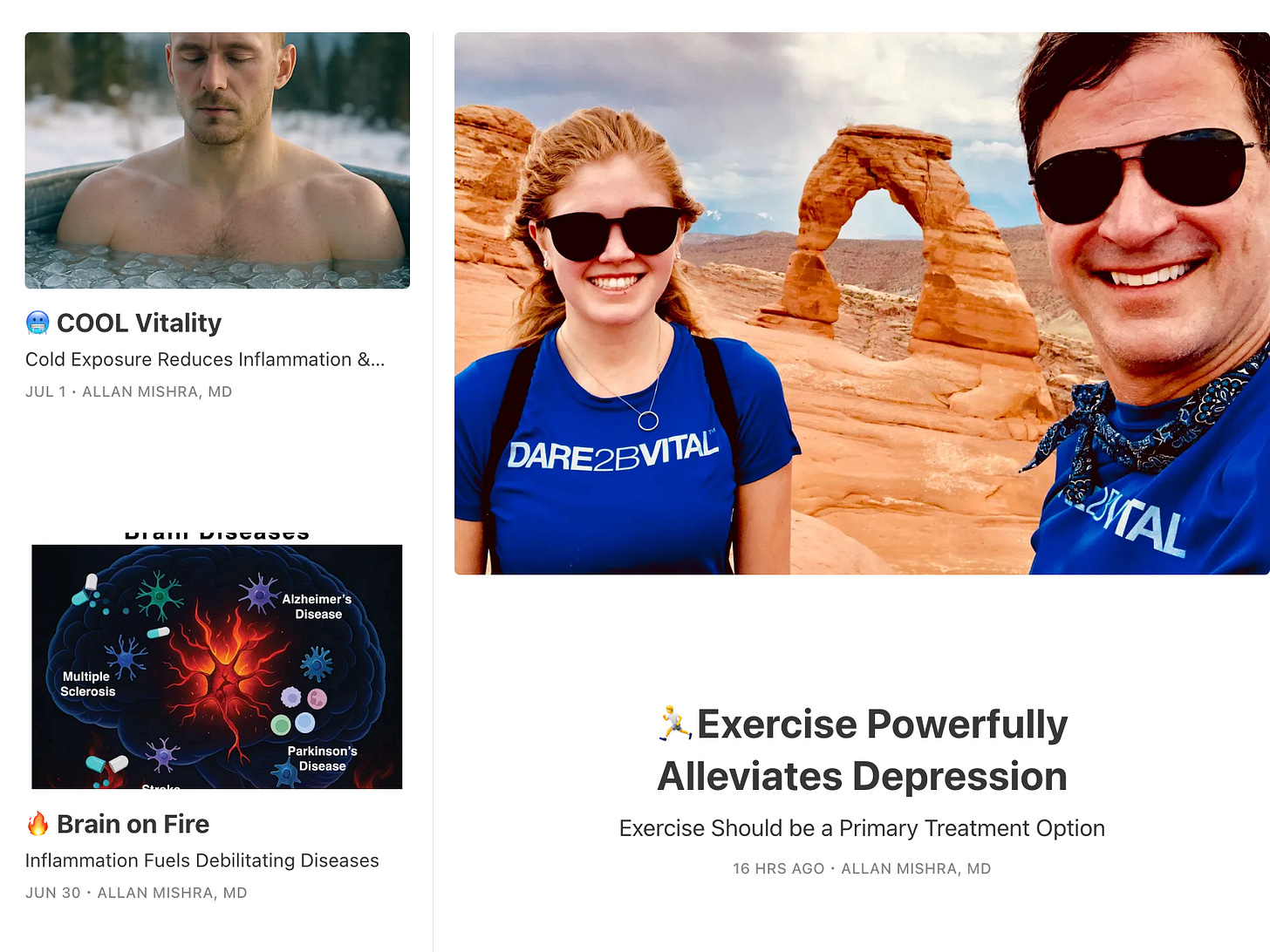Sit to Stand Test & Surgical Vitality Podcast
FIVE PRIMARY POINTS of this week’s PODCAST
Tame the “Brain-on-Fire” Problem
Runaway neuro-inflammation accelerates multiple sclerosis, stroke, Alzheimer’s and Parkinson’s. Prioritize lifestyle tactics that cross the blood–brain barrier—sleep, anti-inflammatory diet, and stress control—while watching developments in next-gen brain-penetrant drugs.Ice Is Medicine: Use Cold Exposure to Re-Route Energy Away from Inflammation
Brief, controlled cold stress (a 90-second cold shower in the morning, progressing to 3–5 min ice baths or cold plunges 2–3×/week) forces the body to burn calories for heat, starving inflammatory pathways and even improving auto-immune outcomes in animal models. Always clear major cold work with your physician first.Move Before You Medicate for Depression & Anxiety
A meta-analysis of 26 RCTs (>2,500 participants) shows exercise rivals—or beats—pharmacotherapy for mood disorders. Aim for a baseline of 30 min brisk walking or resistance work most days; any movement is better than none, and mixed aerobic + strength routines offer the strongest mental-health bump.Inflammation in Your 20s Predicts Brainpower in Your 40s
An 18-year cohort study linked consistently high—or even slowly rising—CRP levels with poorer mid-life cognition. Action: get a baseline CRP, track it yearly, and deploy weight control, resistance training, and nutrient-dense, time-restricted eating (“eat less, eat less often”) to keep levels low.Double-Down on Purpose & Gratitude—They’re Biological Anti-Inflammatories
A strong life purpose lowers IL-6 and CRP, while daily gratitude practice calms the amygdala and drops TNF-α. Practical micro-habit: each week thank five people (voice or face-to-face), and block 15 minutes on Sunday to revisit your “why.” Pair with twice-weekly strength training to release anti-inflammatory myokines and boost BDNF for memory.
Listen to the full podcast to learn more and please leave your comments below.














Share this post